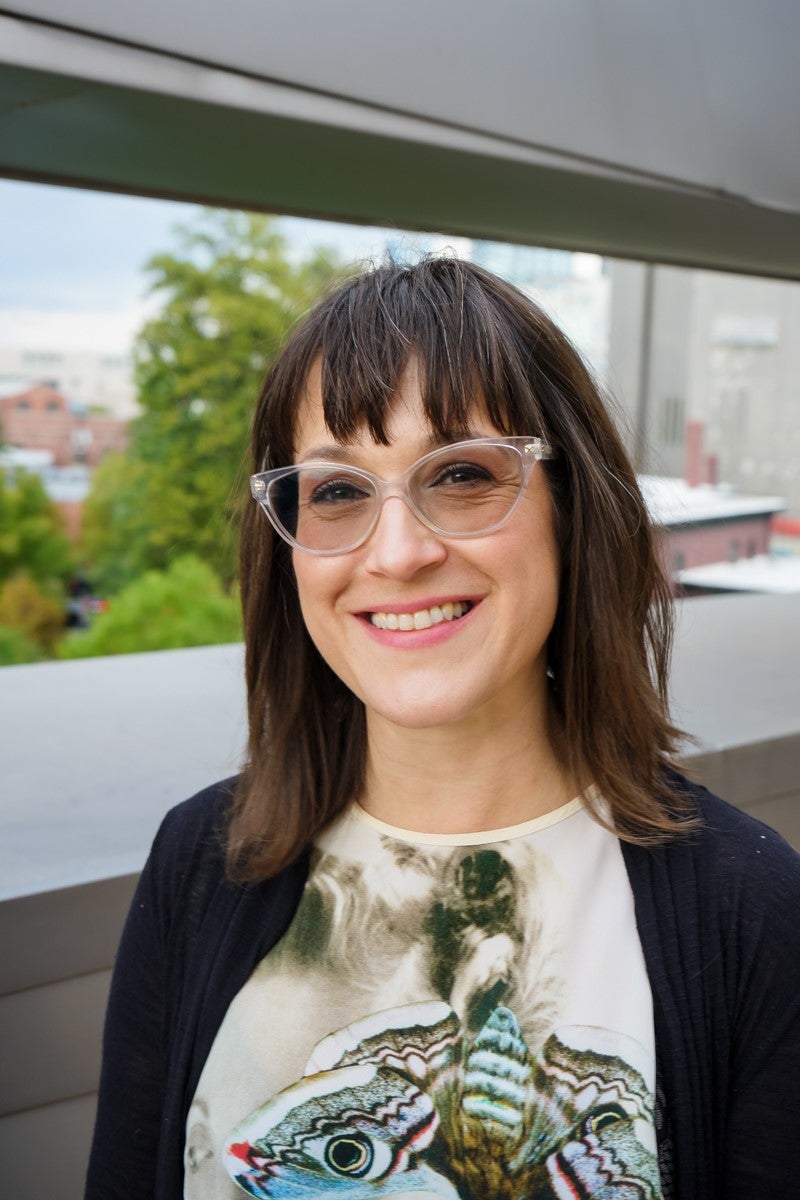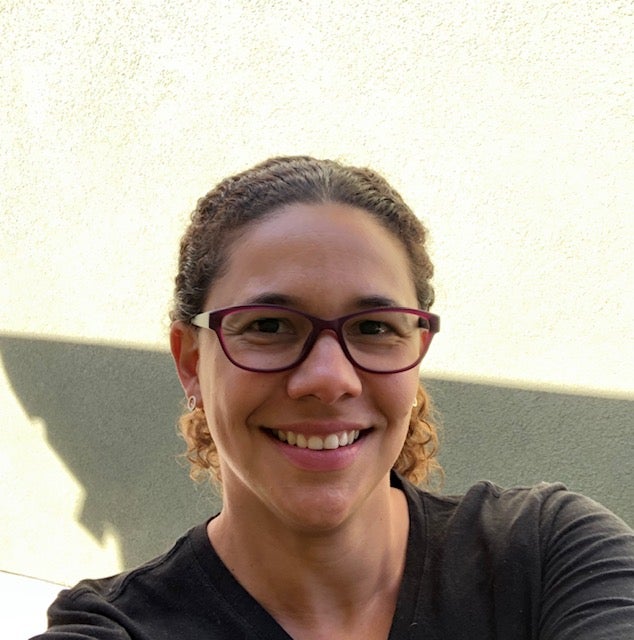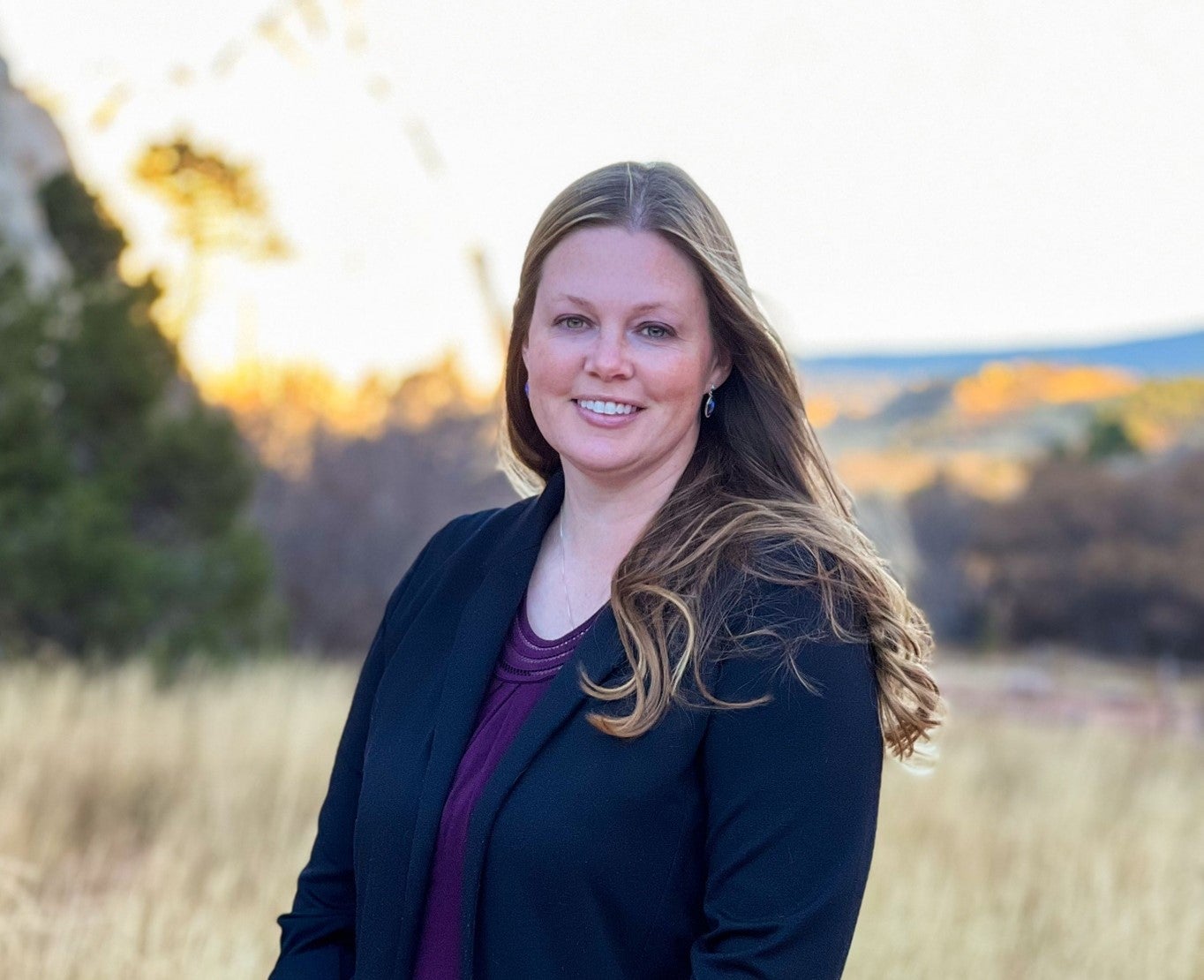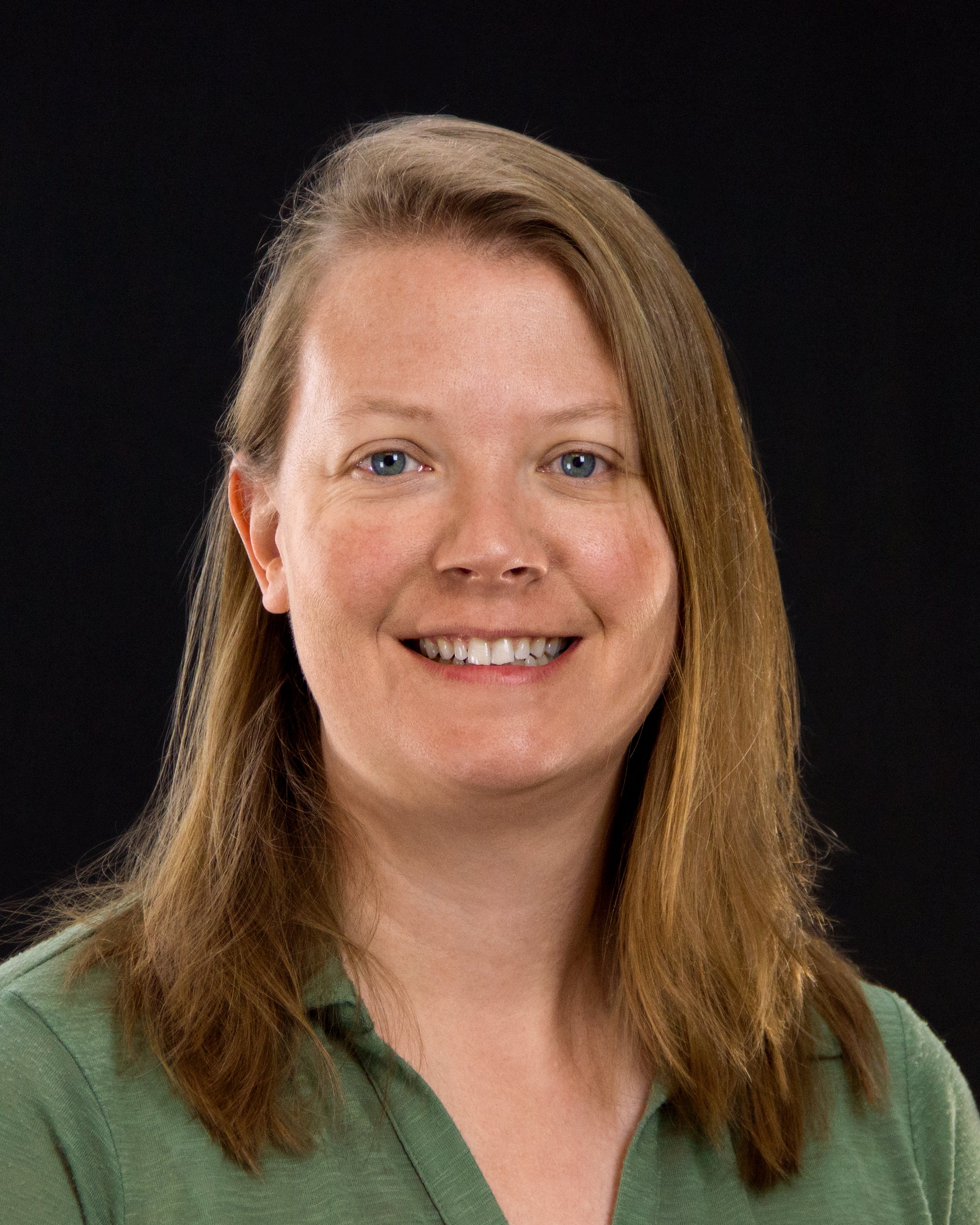
Maria Buszek, Ph.D.
Associate Professor of Art History, University of Colorado Denver
Maria Elena Buszek, Ph.D. is a scholar, critic, curator, and Associate Professor of Art History at the University of Colorado Denver, where she teaches courses on Modern and contemporary visual culture in the College of Arts and Media.
Her recent publications include the books Pin-Up Grrrls: Feminism, Sexuality, Popular Culture and Extra/ordinary: Craft and contemporary art; contributions to the anthologies Punkademics: The Basement Show in the Ivory Tower and Design History Beyond the Canon; catalogue essays for numerous international exhibitions; and articles and criticism in such journals as Art in America, Art Journal, Flash Art, and TDR: The Journal of Performance Studies. With Hilary Robinson, she edited the 2019 anthology of new writing, A Companion to Feminist Art. She has also been a regular contributor to the popular feminist magazine BUST since 1999. Her current book project, Art of Noise, explores the ties between contemporary feminist art and popular music.

Cerian Gibbes, Ph.D.
Associate Professor of Geography & Environmental Studies, University of Colorado Colorado Springs
Dr. Cerian Gibbes joined the University of Colorado Colorado Springs in 2011 after receiving her PhD in Geography from the University of Florida. She is an Associate Professor in the Department of Geography & Environmental Studies. Her curiosity about the environment began in her childhood growing up in a rural community in Trinidad & Tobago. This led to a research trajectory focused on the social and ecological impacts of environmental change, with a particular interest in studying spaces where agriculture and conservation coexist. Her work is primarily situated in Latin America, the Caribbean, and Africa. Dr. Gibbes’ current research, funded by National Geographic, explores the connections between sustainability, land use, and immigrant farming experiences. She is also a two-time Fulbright Fellowship recipient (2014 and 2020). Dr. Gibbes teaches Environmental Remote Sensing, Statistical Analysis in Geography, Urban Sustainability, and Geography of Africa. Additionally, she has co-taught travel courses to Uganda, Rwanda, and Guatemala. In her teaching she seeks to draw from the experience that individuals bring to the class to create an inclusive environment in which curiosity is rewarded, and experimentation regardless of failure or success is valued. She also presently serves as the Director of the Global Intercultural Research Center (GLINT) and on the Student Awards committee for the American Association of Geographers.
Dr. Cerian Gibbes is an Associate Professor in the Department of Geography & Environmental Studies at UCCS. Her research focuses on the social and ecological impacts of environmental change, with a particular interest in studying spaces where agriculture and conservation coexist. Her work is primarily situated in Latin America, the Caribbean, and Africa. She is a two-time Fulbright Fellowship recipient (2014 and 2020). Dr. Gibbes teaches Environmental Remote Sensing, Statistical Analysis in Geography, Urban Sustainability, and Geography of Africa. She has also co-taught travel courses to Uganda, Rwanda, and Guatemala. In her teaching she seeks to draw from the experience that individuals bring to the class to create an inclusive environment in which curiosity is rewarded, and experimentation regardless of failure or success is valued.

Anna Kosloski, Ph.D.
Associate Professor, School of Public Affairs, University of Colorado Colorado Springs
Anna Kosloski is an Associate Professor in the School of Public Affairs at the University of Colorado Colorado Springs (UCCS) where she directs the Bachelor of Criminal Justice program. Dr. Kosloski joined the UCCS team in 2012 and has taught a range of graduate and undergraduate courses covering the foundations of the criminal justice system, criminal justice policy, crime theory, and a variety of topics on violence and victimization. Dr. Kosloski has also co-facilitated study abroad courses and is a co-creator of the criminal justice learning community. She has been a mentor for students interested in research and previously served as the director of the Undergraduate Research Academy (URA), shepherded graduate student theses and capstone projects, collaborated with students on grant funded research projects, and co-authored scholarly works with students. Her own research focuses on the intersections of race, class, gender, and crime. Her recent projects include an examination of Adverse Childhood Experiences and participation in the commercial sex industry, gender differences among buyers in the commercial sex industry, and the impact of historical trauma on Murdered and Missing Indigenous Peoples (MMIP). She has recently published in Women & Criminal Justice, Child Abuse & Neglect, and the Journal of Criminal Justice. Dr. Kosloski believes in bridging professional organizations and academia through collaborative research. She regularly partners with criminal justice and nonprofit organizations on research and program evaluations. These scholarly collaborations have been awarded over 5 million dollars in funding. Dr. Kosloski was recognized in 2016 as the UCCS Outstanding Teacher and is honored to be joining a dedicated team of teacher-scholars through the President’s Teaching Scholars Program.

Heather Lewandowski, Ph.D.
Professor of Physics, University of Colorado Boulder
Heather Lewandowski received her B.S. in physics from Michigan Tech in 1997 and her Ph.D. in physics from the University of Colorado in 2002. She was then an NRC Postdoctoral fellow at the National Institute of Standards and Technology in Boulder. She is currently a professor and associate chair of physics at the University of Colorado, and a fellow of JILA. She leads two research programs, one in experimental molecular physics, and the other in physics education research. Her molecular physics research efforts focus on studying interactions and reactions of cold, chemically important molecules and ions. Her physics education research program studies ways to increase students’ proficiency in scientific practices such as using models and quantitative reasoning in experimental physics.




